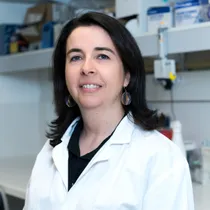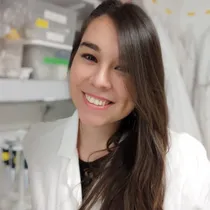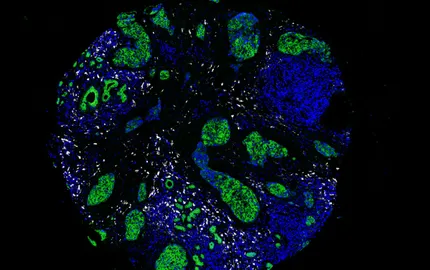Presentation

Cancer immunotherapy is revolutionizing cancer treatment. Until now, treatments were aimed at tumor cells. Today, immunotherapy targets the patient's immune system to allow it to eradicate the tumor specifically and over the long term.
The blockade of immune checkpoints with a-CTLA-4, a-PD1 or a-PD-L1, has given impressive clinical results, positioning immunotherapy as a promising anti-cancer therapeutic strategy. However, only a fraction of patients respond and many develop resistance. Thus, we need to gain knowledge on the mechanism of action of immunotherapies, identify biomarkers of response and toxicity, and design combinatory therapies, with the final aim of implementing more effective and patient-tailored therapies.
Our team has a rare and privileged access to the lymph nodes draining the tumor of patients. This organ is very important because, if the function of the T cells infiltrating the tumor is generally altered, we have shown that the T cells present in the draining lymph nodes are still functional. Access to this organ allows us to study tumor antigen-specific T cells in a very advanced and novel way, which represents the team's signature.
In this context, our research is oriented to:
1) identify novel immunological targets and biomarkers in the tumor microenvironment (TME), tumor draining lymph nodes (LNs) and blood of patients.
2) perform mechanistic studies in vitro and in mouse models of tumors to pre-clinically validate these novel therapeutic targets and biomarkers.
3) finally translate our discoveries to patients.
For that, we have set up a standardized procedure for clinical studies, including the collection of blood, LN and tumor samples from patients undergoing surgery at Curie, Foch and IMM Hospitals, complying Ethical regulations. We have processed more than 300 samples and built a « LN collection » of frozen single-cell suspensions for research aims. We have implemented updated technologies, including: multiparametric flow cytometry, ELISA, ELISPOT, Luminex, bulk and single-cell transcriptomics (RNAseq+TCRseq, scATAC) (including bioinformatics expertise), phage display, generation of human PDX and tumor cell lines, neopitope prediction algorithms, CRISPR/CAS9 gene editing, immunopeptidomic analysis by mass spectrometry, TCR cloning and transduction, syngeneic and humanized mouse models.
Our research program is structured around three main thematics, each based on the three axes described above:
A) Optimization of anti-tumor immune responses in rhabdoïd tumors: a translational approach
B) Mechanisms of human Treg development and function in cancer: a multi-modal single cell omics approach
C) Characterization of T cell response to neo-antigens in three types of cancer, and design of personalized vaccination strategy (clinical trial)




























